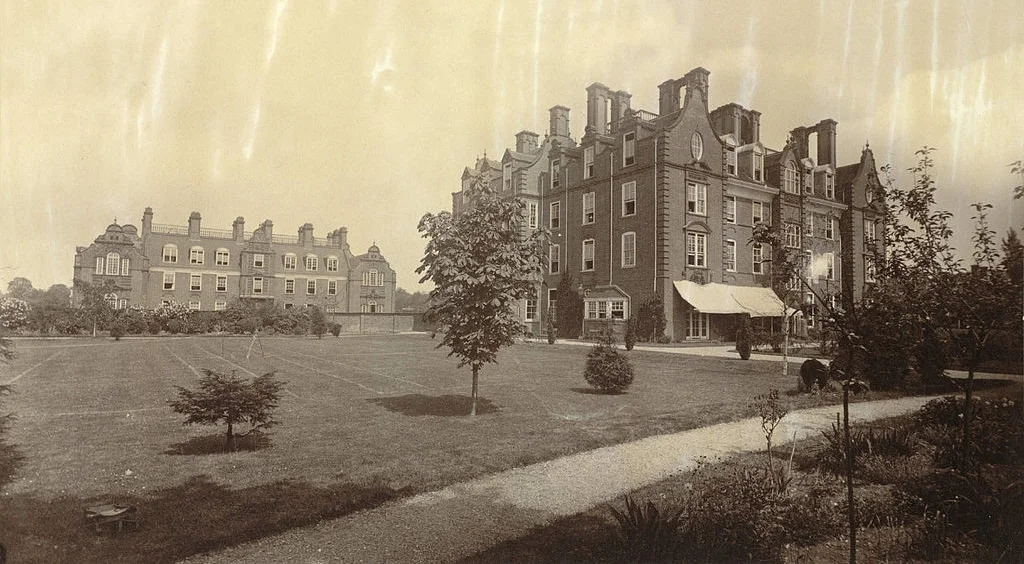The End of the Story
By Anonymous
Editors' Note: The author has asked to remain anonymous because they feel this post might jeopardize their tenure review process. The editors of Lady Science object in the strongest terms to policies that potentially punish junior faculty who speak out about sexism in the classroom.
At the end of each semester, college and university students across the country fill out their Course Evaluations. These take a number of different forms and final results. While the quantitative scales used for the results vary, the questions asked usually share a common theme: issues of the instructor grabbing your interest, usefulness of the course, the timely return of assignments and exams , and of course, the instructor effectiveness.
Instructor effectiveness, like its equivalent at other institutions, is the most important number at my college for awarding performance raises, faculty awards, and promotion and tenure. It is the main metric I have to report for annual reviews and department assessment. Many times, students also get to answer qualitative questions about the instructor’s and the course’s strengths and weaknesses. These are the answers most instructors care about. Sure, I look at my effectiveness score. If it is a high score (3-4), I’m happy; if it’s low (0-2.9) I am disappointed. But no matter what, I always read the comments. Comments are any instructor’s bread and butter for course improvement. But it’s hard to improve the course when the comments take aim at the main course material—women in history—and complain that it is unimportant.
I usually teach an upper-level history of science survey course and an introductory general survey course in any given semester. Overall, I am considered a good instructor and just won a campus teaching award that helps prove that point. In my classes, I often focus on the roles that women have played in history, especially the history of science.
In case you are a new reader to Lady Science, I just want to make it clear: women are central to history. Unfortunately, unless you take specific elective courses or seek out this “alternate” narrative, you will not read much about women or other non-white, non-males. My goal in class is to decolonize the European, misogynistic, white-washed narrative that we are presented throughout our formative educational years. Then I re-center the story on the real actors--women, people of color and more--and therefore a new narrative. My (mostly male) students often learn about the new narrative for the first time in my classes. Most students are enthusiastic and like to learn new points of view. But there are always a couple of students who fight these new ideas.
This past semester, for example I had 2 history of science sections, which I taught back-to-back. Everything—down to the syllabi and lectures—was identical. In one class I scored a perfect 4 for my effectiveness; in the other, I scored a 2.9. “Why so low?” I wondered, perplexed. I found my answer—in the second class, two students scored me 0 for effective teaching. Ouch. My next stop was obviously the comments.
In the class where I got a 4, comments ran along this line:
- “She is a very strong speaker and good instructor. Honestly one of my favorites.”
- “Subject matter and use of technology was excellent. Perspectives on women in history were also excellent and very thought provoking. I've seen complaints on other review sites that the course is excessively feminist but I disagree. It was very effective at showing facts regarding women's treatment throughout history and in the present.”
But other students in this class thought:
- “I think her only weakness is perhaps putting too much emphasis on women in science. While I think the majority of the work and lecture predicated off women is valuable, I'm not sure that it is as valuable toward understanding history of science as other potential material could be. I do not mean to say this as a real flaw per se, but this class is very clearly placing far more emphasis on women in history of science than would normally be covered.”
In the other class, the comments took on an outright sexist bent: “Have the content not have an obvious agenda of trying to insert a feminist perspective if the material does not call for it.”
- “make sure the teacher teaches the material and not what she wants”
- “Teach the material that is important to the class, not the agenda the professor is trying to push.”
Then there was this one, which struck me particularly hard, so I share it in its entirety verbatim (grammar mistakes abound):
- “let students know their grade feminist articles shouldn't make up half of the course material mistreatment of women is a strong point in history but shouldn't be half of the material, it has been taught in all history classes I have had that women have been and still are mistreated (yes, they were taught by men whether you believe it or not) but they didn't spend the majority of the course on the subject for obvious reasons. I have a story for perspective: My first college course was English Composition 1, in this course my black teacher forced me to write all 4 papers in the class about how whites have mistreated blacks and how we should develop a plan to pay extra taxes to them in order to help them be as successful as whites. It is not acceptable to use the classroom as a place to ruin the course material and just focus on your own personal agenda. I know you think you're making the world a better place, but forcing your agenda down people's throats hurts your argument more than helps it. If someone tied you down and ranted about how men are mistreated by women for 4 months and you had to take it in order to get paid, better yet you have to write and talk about it AND you have to agree that men are more mistreated than women. Then you would be in the same situation your put your students through. You say students can voice their opinion but you bite their head off if they disagree, and their grade reflects it. A feminist database is not an acceptable source for class articles...... I know I know, my rant has no effect. If any action was taken towards Dr. X or my English Composition one teacher the school would get sued like nobodies business and lose whole heartily. Thanks Obama.”
The main issue for me in the comments for both classes, was that more than 2 students (the ones who gave me zeroes) were of the mind that women, while probably important to science, just did not need to be given that much attention in class and that I should focus on what is “important” in history. To be clear, what they mean but do not have an understanding to put into words is that history is what men did, how men changed the world, and what men think about what other men did. To mention any Other person--non-male, non-white, non-Christian, non-heterosexual, non-gender conforming--is to push a feminist (read: offensive) agenda.
I have grown tired of hearing that I talk too much about women, that I need to just mention a couple of women scientists and be done with that part of the class.
All of this came flooding to my attention one day after Christmas. One day after Vera Rubin died. If you haven’t heard of her, you’re not alone. Her story is an important example of a woman’s struggles and successes in science and why these types of stories still matters today.
Vera Rubin’s story is not unique among women scientists, but it is eye-opening for most readers—even those of us who study women in science for a living. Her story has been well told here, and here, so I will not recap it. But, it is important to know that Rubin is credited with using data to draw the conclusion that much of the known universe is made up of dark matter. According to the New York Times obituary of Rubin, “Her work helped usher in a Copernican-scale change in cosmic consciousness, namely the realization that what astronomers always saw and thought was the universe is just the visible tip of a lumbering iceberg of mystery.” That is to say: Rubin was the female Copernicus, yet, she never won a Nobel Prize.
We are shocked by the treatment she received at the hands of her colleagues throughout the years, but we are even more surprised and delighted that she broke through all of those barriers . Rubin’s story story ends somewhat happily—she was a successful scientist in the end. But women scientists still encounter the same barriers today that Rubin encountered in her career. As one of my favorite astronomers said: “WHY ARE THESE OUR STORIES[?]”
Many people think that just because women are in universities and entering science and engineering at the highest rates in history, in addition to achieving other hard-won (but still tenuous) civil rights, women have achieved equality. In fact, many men believe that women have it made. In this article namely Republican men think it is better to be a woman now than to be a man. What these men miss, and what people do not see on a regular basis is problematic. Examples include: This article about women having trouble with their male advisers asking for relationships when all the student wants to do is work (and the price they pay for that work); this Nobel Laureate who argued that “letting” women into the lab is a career-killer for both parties because you’ll fall in love and she’ll cry; this woman who was arguably the most qualified person for the position she applied for but lost the position to an inexperienced, narcissist; and this investigation by the hosts of a podcast who were sick of hearing that they talked too much about women.
You’re here. You’re reading this post so you must care about women’s experiences in a highly masculine world of science, technology, and medicine. But there are a large number of people (some of whom populate my history courses) who think these stories really aren’t central to the practice of science. Some people consider it a personal affront to have to learn about non-male non-white non-Christian people in history. This attitude is problematic not just in my classroom and the classes of some of my colleagues, but also to the general public who think it is normal to talk about women in sexual or demeaning ways but not in ways that reflect how they have shaped society and culture.







